Health & Family Welfare
Project Name: Community Action for Health
Project Title:
Community Action for Health
Community-Based Planning and Monitoring Processes Project
Project Duration:
Community Action for Health (April 2021 – March 2024);
Community-Based Planning and Monitoring Processes Project (November 2017 – March 2021)
Geographical Area of Activities:
- April 2023 – March 2024:
The project was implemented in 2,880 villages across 101 Primary Health Centres (PHCs), 614 Sub-Centres, 10 Rural Hospitals, 7 Sub-District Hospitals, and 8 District Hospitals in 8 districts—Ahmednagar, Thane, Palghar, Nashik, Nandurbar, Raigad, Chandrapur, and Gadchiroli—and covered 18 blocks throughout Maharashtra.
- November 2017 – November 2020:
The earlier phases of the Community-Based Planning and Monitoring Processes Project encompassed 226 villages across 28 Primary Health Centres (PHCs), 4 Rural Hospitals, 2 Sub-District Hospitals, and 4 District Hospitals in four districts—Ahmednagar, Raigad, Amravati, and Chandrapur—within eight blocks of Maharashtra..
Funding Source:
National Health Mission
Project Overview:
The “Community-Based Planning and Monitoring Processes Project” aims to strengthen public health services by fostering active community participation. The project focuses on developing strategies, interventions, and monitoring processes with local involvement to enhance the effectiveness of public health systems across various districts and blocks in Maharashtra.
Key Activities:
- Development and implementation of community-based planning and monitoring processes to improve public health services with the active involvement of State Health Systems Resource Centre, block and district administration and partner NGOs across 8 districts of Maharashtra
- Strengthening public health services through active engagement with the community in 8 districts and 18 blocks of Maharashtra.
- Empowerment of key village institutions- local health committees such as Village Health Sanitation and Nutrition Committees, Jan Arogya Samitis (Earlier known as village RKS Committees) and Village Health Volunteers in ensuring effective health service delivery.
- Advocacy with Block/District/ State Public Health Administration for affordable, assured and accessible public health services
Major Outcomes and Impact:
- Strengthened public health services with the active participation of local communities, leading to improved service delivery and responsiveness.
- Sustained and empowered key village institutions, including VHSNCs, Jan Arogya Samitis, and Village Health Volunteers, ensuring their continued contribution to health service monitoring and planning.
- Creation of active and vibrant platforms for community action, through Special Women and Health Gram Sabha’s for bridging the gap between service providers and recipients to enhance transparency and accessibility.
- Enhanced demand generation for affordable, assured and accessible public health services, focusing on reaching underserved rural populations and ensuring “No One” left behind.
Between 2017-2020
Under this health initiative quality health care was provided to the underprivileged population living in rural areas. Service seekers from 226 villages availed health services from 28 Primary Health Centres (PHCs), 4 Rural Hospitals, 2 Sub District Hospitals, and 4 District Hospitals.
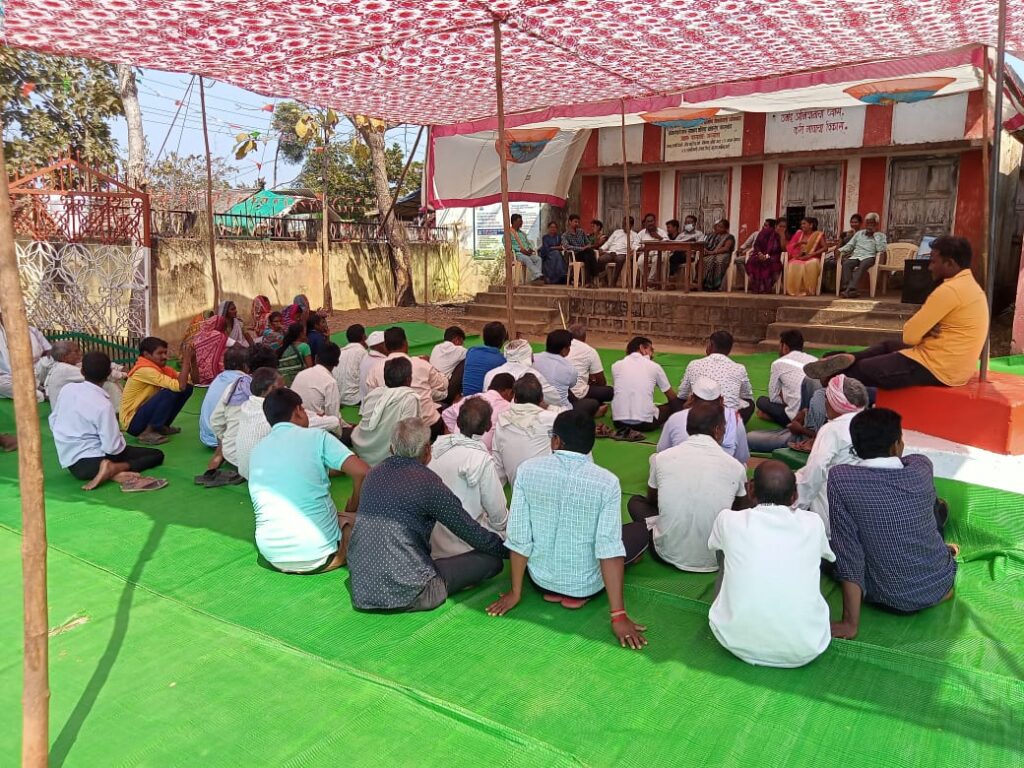
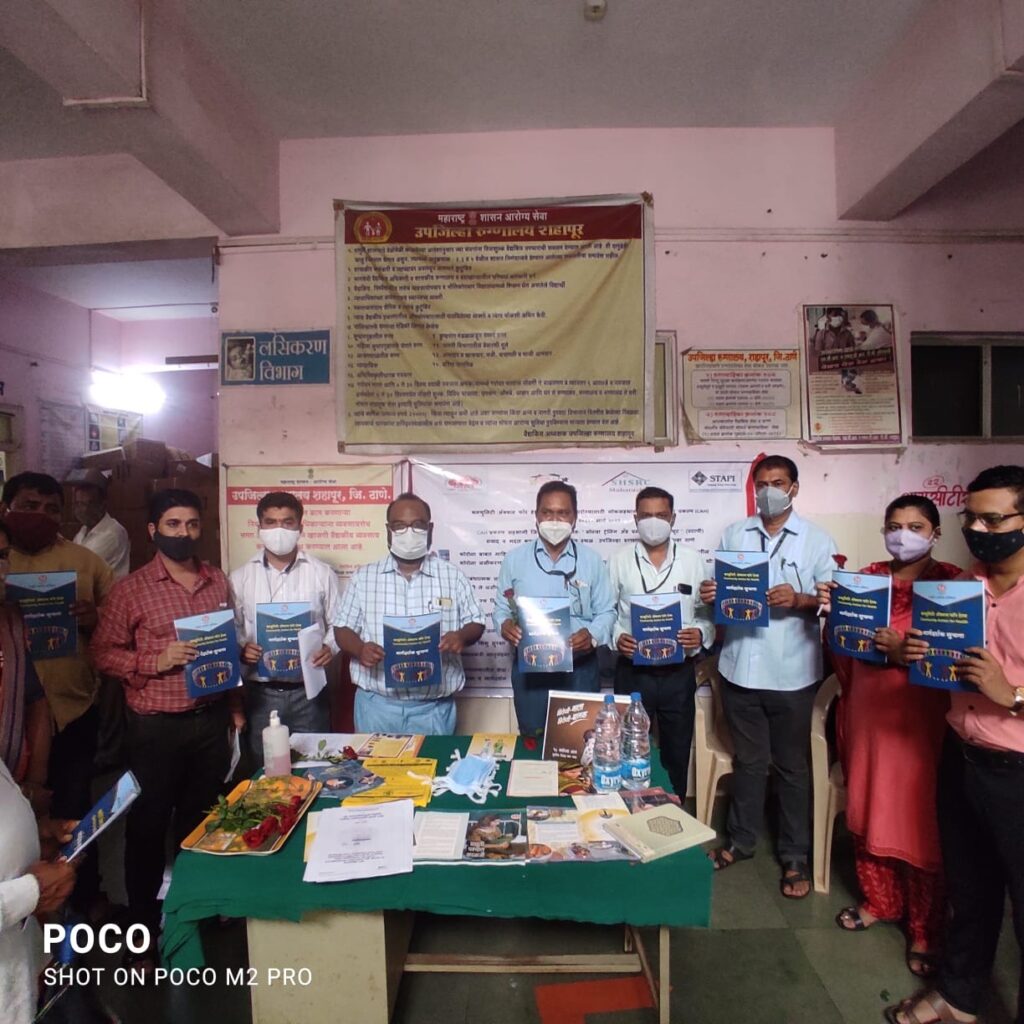
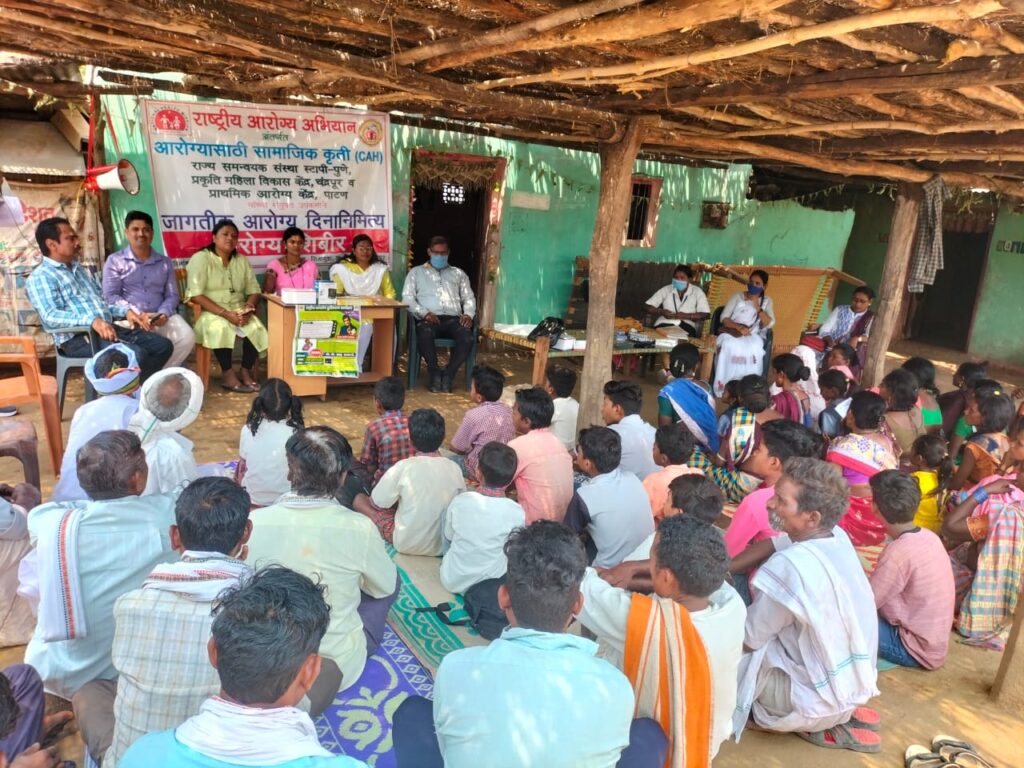

Project Name: PEPFAR America Rescue Plan Act (ARPA) Project
Project Duration:
- January 2022 – September 2022
Project Location:
- Satara, Sangli, Kolhapur, and Solapur districts of Maharashtra
Funding Source:
- FHI360 and USAID-funded Meeting Targets and Maintaining Epidemic Control (EpiC) Project
Project Overview:
The project addressed vaccine hesitancy and promoted access to Corona vaccines.
The project supported safe and uninterrupted access to HIV services and commodities for key populations (KPs) and people living with HIV (PLHIV) through community outreach, communication, and vaccination efforts in 4 non-PEPFAR districts of Maharashtra.
Key Activities:
- IEC/BCC Sessions:
- Conducted sessions for community leaders working with KPs and PLHIV to explain the importance of getting vaccinated.
- COVID-19 Vaccination Camps:
- Organized special vaccination camps for KPs and PLHIV to make sure they received their 3 COVID-19 vaccines on time.
- Development of Risk Communication and Community Engagement (RCCE) Materials:
- Created and shared materials to encourage KPs and PLHIV to get vaccinated, working with local groups in the four districts.
Key Results:
- Successfully increased access to COVID-19 vaccines for KPs and PLHIV in the districts outside the PEPFAR program.
- Helped ensure vulnerable groups were included in the vaccination efforts and supported their health.
- Ensuring vaccination of vulnerable groups through vaccination camps and Help Desks with active involvement and support of District AIDS Control Prevention Units of 4 non-PEPFAR districts of Satara, Sangli, Kolhapur, and Solapur)
COVID-19 Vaccination Statistics:
- 5,499 people vaccinated:
- 3,596 through vaccination camps
- 1,903 through help desks
- Vaccination Breakdown:
- First Dose: 563 persons
- Second Dose: 2,051 persons
- Precautionary Dose: 2,885 persons
Vaccination Camps:
- Held seven vaccination camps for KPs and PLHIV to provide all vaccine doses at following locations:
- Rural Hospital Ichalkaranji, Kolhapur District
- ART Centre Gadhinglaj, Kolhapur District
- Government Medical College, Kolhapur District
- Savitribai Phule ART Centre, Kolhapur District
- Kavathe Mahakal ART Centre, Sangli District
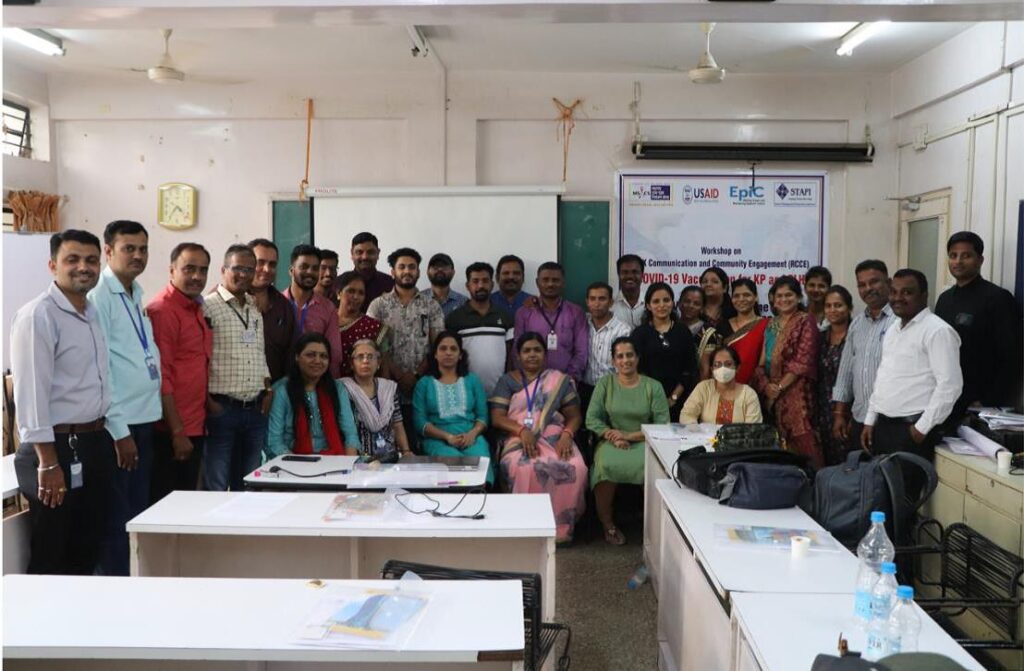
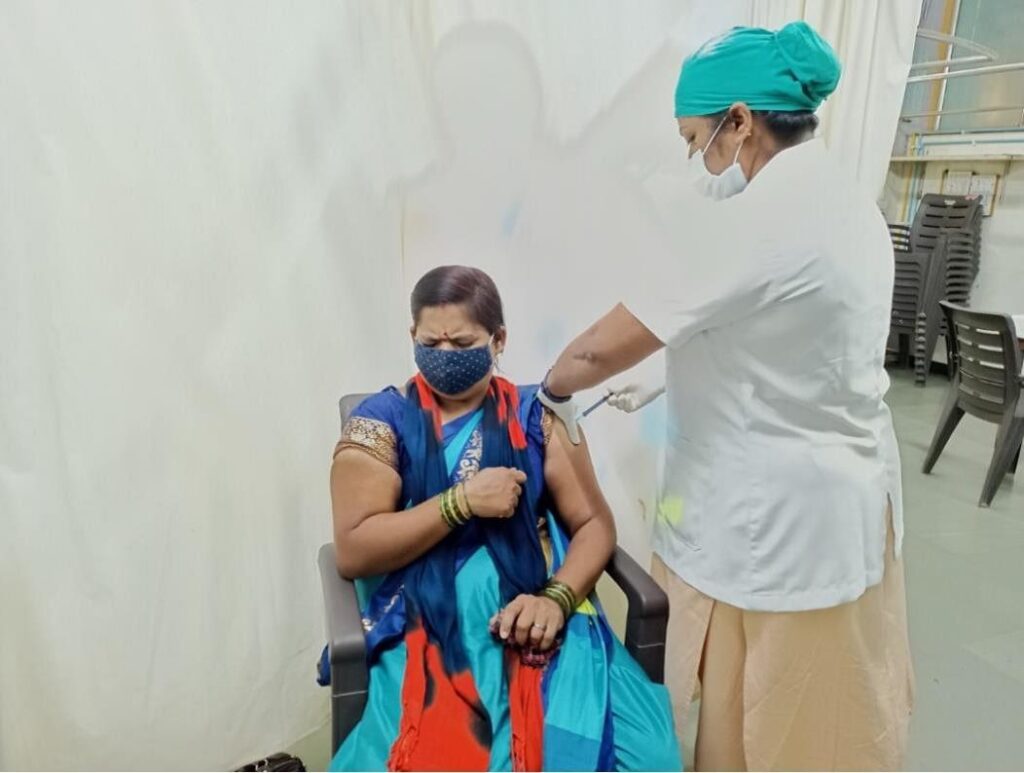
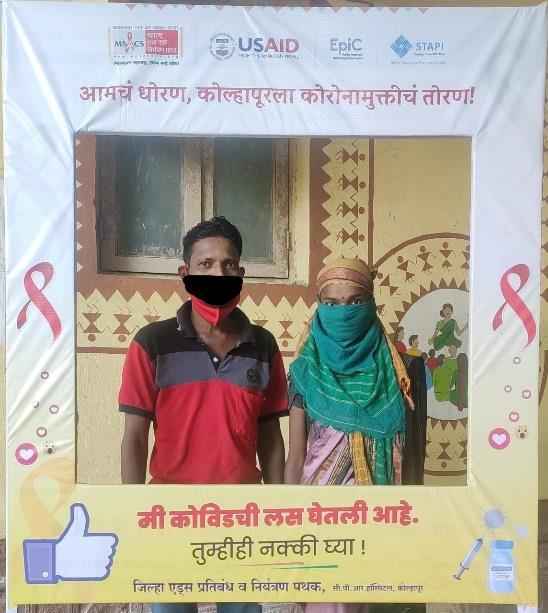
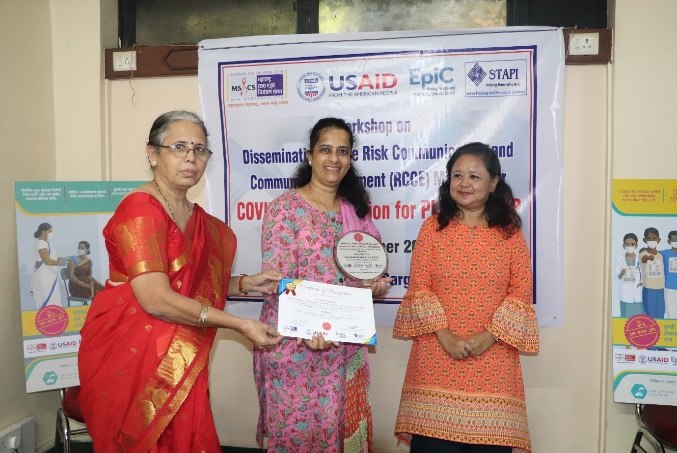
Community Engagement and Support:
- Set up help desks in Satara, Sangli, and Solapur to assist with the vaccination process.
- Developed materials to fight vaccine hesitancy and encourage vaccinations, based on feedback from KPs and PLHIV.
